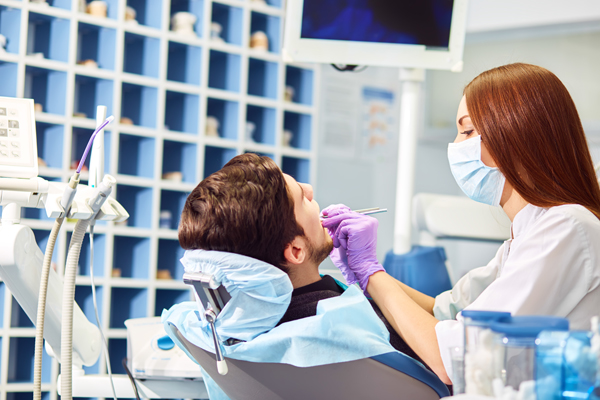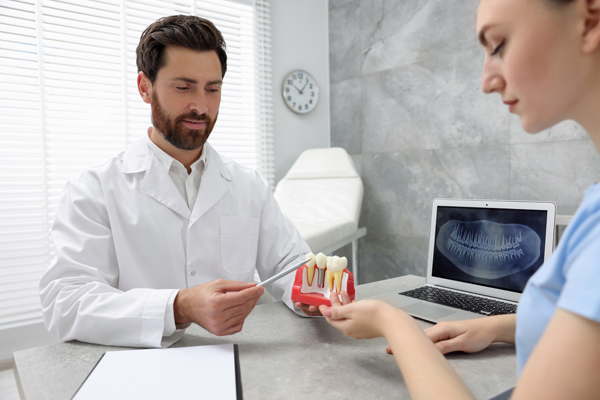A Family Dentist Discusses the Importance of X-rays

At one point or another, a family dentist might suggest getting x-rays and examinations of the oral cavity. The scans might be more regularly recommended for patients with a high risk of tooth decay than once or twice a year. X-rays are important and a necessary aspect of a dental diagnostic procedure. Without the scan, it might be impossible to detect some dental conditions with the naked eye.
The importance of x-rays according to a family dentist
One of the major reasons people visit the dentist is to detect oral conditions before they become complicated. Although a physical examination can detect obvious signs of problems, some oral diseases are not plain to the naked eye. Therefore, x-rays are a required part of dental care.
X-rays are necessary because there is a limitation to what can be diagnosed absent the aid of dental devices, and x-rays allow dentists to have a close-up visual of areas between and under the teeth. The family dentist can see the pattern of tooth eruption, the alignment, presence of dark spots between the teeth that may indicate cavities, any impacted teeth beneath the surface of the gums, or missing adult teeth.
X-rays also play a crucial role in detecting possible life-threatening conditions. A scan can reveal cancerous tumors in the oral cavity. Early detection ensures prompt intervention and increases the chances of successful treatment.
Types of x-rays
There are four different types of x-rays that are commonly used in the dental office. The x-rays are different, depending on the teeth that need scanning, the mouth quadrant, and the angle of the scans.
- Panoramic: A panoramic x-ray is an image of the entire mouth. For this x-ray, the camera will go around the head. It helps the dentist observe the growth and development of the teeth and jaws
- Bitewing: For this scan, a patient will bite down on a unique sheet of paper as the scan is ongoing. Dentists use this x-ray to check how the tooth crowns line up. This x-ray helps to reveal the presence of cavities between the teeth, as well
- Intraoral-Periapical (PA): This x-ray provides a close-up look of the bicuspids and molars and helps dentists observe the entirety of the teeth, from root to crown
- Occlusal: This scan focuses on how the upper and lower teeth line up (bite alignment). It also helps to discover decay on the front teeth
The bottom line
Many people are often bothered about the effects of radiation from dental x-rays, but there is usually no need for concern. Dental offices take the necessary precautions to run the diagnostic scan safely. The level of radiation from dental-x-rays is minimal, and the risk is insignificant.
Although x-rays are not taken every six months, they are just as important for preventive care as every other step. A family dentist typically takes x-ray scans to get a clear overview of the oral cavity and ensure the mouth stays healthy. Brushing, flossing, regular dental checkups, and x-rays all play a crucial role in dental health and limiting the occurrence of oral issues such as cavities and gum disease.
Request an appointment here: https://www.agawamdentalarts.com or call Agawam Dental Arts at 4133627815 for an appointment in our Feeding Hills office.
Check out what others are saying about our services on Yelp: Read our Yelp reviews.
Recent Posts
Gum disease treatment addresses the root source of the disease and halts the ramifications. Gum disease, or periodontal disease, is a common condition that damages the gums and the structures that support the teeth. If left untreated, it can cause serious problems, including tooth loss. The good news is that if caught early, these treatments…
Tooth implants are replacements that look, feel and function like natural teeth. They can be used when someone loses their teeth to injury or decay. The tooth implant procedure is simple, but patients often have plenty of questions about it. Continue reading to discover answers to some frequently asked questions about tooth implants.Accidents, unsuccessful root…
While getting a tooth extraction may seem daunting, there are many situations where the procedure offers significant health benefits. General dentists often only recommend removing a tooth when keeping it will do more harm than good. Tooth extraction may be necessary to improve overall oral health, alleviate discomfort, and prevent further complications. Here are five…
Considering clear braces? Read on to learn more about the process and duration of treatment. Patients often inquire about the length of time they will need to wear clear braces at their first appointment with the dentist. The patient's condition mostly determines the duration. Braces may take longer than expected in certain cases, and individuals…


